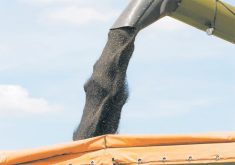The 2021 growing season wasn’t a lot of fun for many of us. Here are some thoughts on getting more enjoyment as well as more profit from your farm lifestyle. I gathered these ideas for a presentation during the recent Farm Forum event.
You’ve probably heard the saying that a farmer is a jack of all trades but master of none. Actually, many farmers are masters at tasks, but everyone has a different skill set.
Recognize what you’re good at and what you need help with and get professional help where it’s warranted. Professional help should make you money and take stress out of your life.
Read Also

Downturn in grain farm economics threatens to be long term
We might look back at this fall as the turning point in grain farm economics — the point where making money became really difficult.
Watch your fixed costs. Everyone enjoys running newer equipment and it’s important to get field operations done in a timely manner, but how do you know if you’re under-equipped, over-equipped or about average?
Add up the value of all your equipment and divide that by your seeded acres to come up with an equipment investment per acre. Maybe you’re at $350 for equipment investment per acre or maybe you’re at $700. Various benchmarks are available to let you know if you’re high or low for your region.
On a related note, many of us would love to have a modern farm shop big enough to do all sorts of major equipment repairs over the winter. That can be a good investment if you use it extensively. However, I see some beautiful farm shops that aren’t used enough to warrant the cost.
When does a hobby become a job? Beautiful yards and big gardens take a lot of time and effort. If that’s a priority for you, great. But it’s important to reflect on costs and benefits. Is yard work or work in the garden preventing you from having some leisure time with family? A high maintenance yard may look nice, but it doesn’t pay the bills.
Obtaining farm labour, particularly seasonal labour, can be a major source of stress. Retired farmers are part of the solution. Farmers who have rented out their land often take seasonal labour with their renters.
Another tactic is to create year-round employment on the farm with tasks such as grain hauling and equipment repair or perhaps a related enterprise like seed cleaning.
I also believe there’s untapped potential in non-farmers who would love to work on a farm for part of the year. You need to be flexible to accommodate people who want to learn and don’t want to work long hours every day. On the upside, it helps you see the farm from a fresh perspective.
Of course, many farms rely mainly on family labour. Working with family can be one of the greatest joys of farming, but it can also be one of the greatest sources of stress.
As you look around your community, I’ll bet you can cite instances where family members that used to farm together have gone their separate ways. If working together is no longer feasible, make the split as amiable as possible and remember you’re still family and can still be friends.
Remember to stay safe. Social media is full of pictures of young kids riding along with parents in tractors, sprayers and combines. There’s also lots of content with parents showing off pictures of their young kids running all sorts of equipment.
I understand the pride, but please be careful. Nothing is more important than the safety of our kids and grandkids.
Kevin Hursh is an agricultural journalist, consultant and farmer. He can be reached by e-mail at kevin@hursh.ca.


















